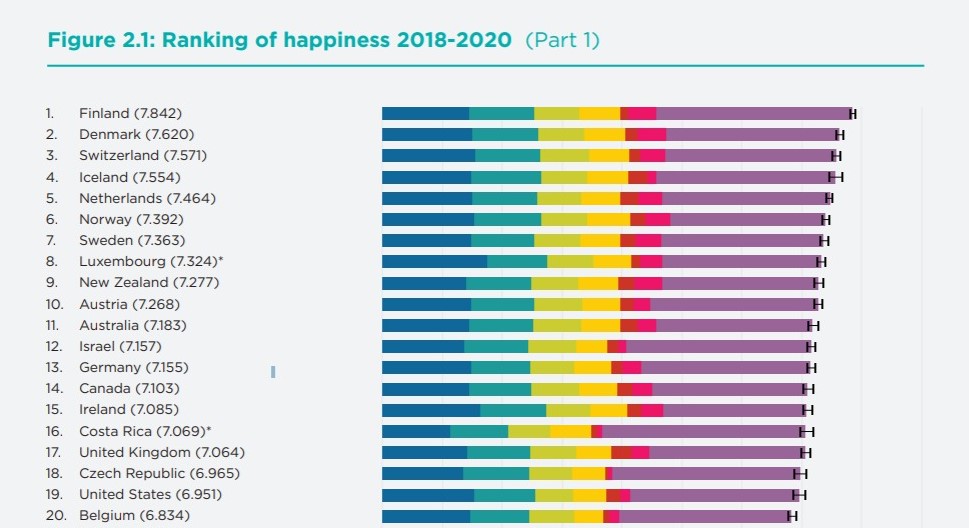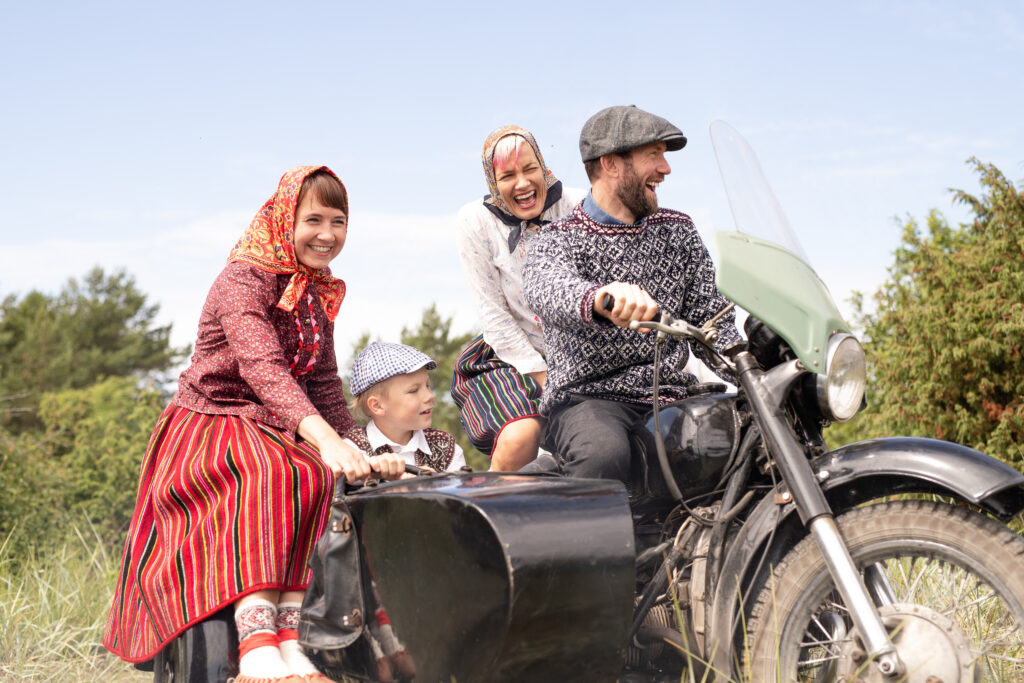According to the World Happiness Report 2021, Estonia is the 40th happiest nation in the world; as recently as 2019, the country was on the 55th position.
The 2021 World Happiness Report is a publication of the Sustainable Development Solutions Network, powered by data from the Gallup World Poll and edited by professors from the US, the UK, Canada and South Korea. The report ranks countries on variables that support well-being – income, freedom, trust, healthy life expectancy, social support and generosity.
According to the 2021 report that compiles data from 2018-2020, Estonia is the 40th happiest nation in the world. By comparison, in the 2019 report, Estonia was 55th and in 2018, the country only ranked 63rd.
However, Estonia’s close neighbour, Finland – with who Estonia shares a certain kinship – is the happiest nation in the world, according to the report.

“It comes as no surprise as Finland once again takes the top spot as the happiest country in the world according to survey data taken from the Gallup World Poll. It has always ranked very high on the measures of mutual trust that have helped to protect lives and livelihoods during the pandemic,” the report said.
A sombre moment
The ninth annual happiness report marks a sombre moment as COVID-19 continues to rage on a little more than a year since it was declared a pandemic by the WHO – more than two million people have died worldwide.
“This year’s Happiness Report was faced with a unique challenge in trying to understand what effect the pandemic has had on subjective well-being and vice versa. Of all the factors usually supporting happiness, the most important for explaining COVID-19 death rates were people’s trust in each other, and confidence in their governments,” the authors of the 212-page report said in a statement.
“The World Happiness Report 2021 reminds us that we must aim for wellbeing rather than mere wealth, which will be fleeting indeed if we don’t do a much better job of addressing the challenges of sustainable development”.

Mental health
The report noted that mental health had been one of the casualties both of the pandemic and the resulting lockdowns.
“The early decline in mental health was higher in groups that already had more mental health problems – women, young people, and poorer people. It thus increased the existing inequalities in mental well-being,” the report pointed out. “At the same time, as mental healthcare needs have increased, mental health services have been disrupted in many countries. This is serious when we consider that the pandemic is likely to leave a lasting impact on the younger generation”.
On the positive side, however, the pandemic has shone a light on mental health as never before. “This increased public awareness bodes well for future research and better services that are so urgently needed,” the report noted.
Cover: A family in Estonia’s Kihnu island enjoying a motorcycle ride. The image is illustrative. Photo by Renee Altrov.

